10 Things I would like Steve Ballmer to do in 2011
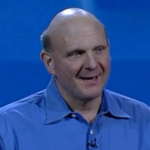
While I would not consider myself a Microsoft fanboy, I definitely do find myself interested in the company's products to the point that I'd love to see Microsoft recover from its past mistakes and establish its brand firmly in the minds of consumers again. No matter how you view Microsoft, it is a great company with some pretty cool products. They are nowhere near the popularity of Apple or Google, especially when it comes to the tech press, but I cannot help but think that Microsoft stands in a unique position to wow us in 2011.
Will Microsoft do it? I don't know for sure. But I hope so. Microsoft employs some of the smartest and most talented programmers and scientists working anywhere. Then there's Steve Ballmer, the charismatic CEO whom many people think is fighting to save his job. As a Microsoft user and developer, I want to see the company succeed in 2011. Surely Ballmer wants to receive feedback from people like me, so I have compiled a list of 10 things I'd like to see him do this year. I believe that if Ballmer is successful at bringing these things (and others) to market this year or next, he will not only save his job but will make Microsoft a stronger consumer brand, something the company desperately needs in order to be competitive in the future.
Apple needs Jony Ive more than it does Steve Jobs
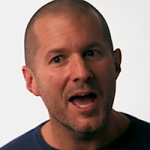
There has been lots of recent speculation about whether Apple can go on without its CEO should he not return from medical leave. Steve Jobs may be visionary and iconic, but Jony Ive's value simply can't be overstated. Apple's vice president of industrial design has influenced most of the major hardware product designs since joining the company in 1996. I have long felt that Apple could more easily go on without Jobs than Ive, but never really had cause to state so until today, following a report from the Sunday Times of London that is spreading like wildfire across the InterWebs.
Ive is the creative genius behind designs for iPad, iPhone and iPod, which, combined, accounted for two thirds of Apple revenues during calendar fourth quarter. He takes credit for Macs, too -- aluminum PowerBook, iMac, Titanium PowerBook and unibody MacBook Pro. Ive is an indispensable employee -- like Chief Creative Officer John Lasseter is to Pixar -- someone Apple shouldn't want to lose. If the Times report is even marginally accurate, Ive and Apple are in a tuff over whether he works in Silicon Valley or his native United Kingdom. The outcome raises questions about his departure from Apple.
One IT pro explains why he fears and embraces disruptive cloud and mobile platforms

Betanews welcomes reader contributions. Here, Eric Neumann responds to two February 21st posts by Joe Wilcox -- "iPad is not a PC" and "5 reasons Macs will never outsell PCs." If you would like to submit a post, please email joewilcox at gmail dot com.
Being a business IT professional, I have been watching with great interest and excitement the emergence of the iOS model of computing and cloud movements hitting the personal and now commercial computing worlds. However, I must add that initially I have also viewed these big changes with fear; as recently as 2006, my career was purely based on the SME IT status quo of on-premise Microsoft and LAMP (Linux, Apache, MySQL, PHP) stacks.
Samsung, Motorola, and HP set stage for iPad 2's app push

OK, we've seen the best tablets now that the industry can offer.
At [Consumer Electronics Show] Motorola Xoom won best of show. Last week we saw the HP TouchPad, which looks even better. Finally, [Mobile World Congress], at the very end of its presentation, Samsung launched a 10-inch Tablet.
Nokia needs plastic surgery not a brain transplant

Stephen Elop is wrong to call Nokia's platform "burning." It's this attitude that has sent the world's largest handset maker on a path to ruin. The former Microsoft executive and six-month Nokia CEO expresses a misguided perspective about the company he runs. Nokia's house isn't on fire. The only thing burning is the fire Elop set to the Symbian platform with last week's Microsoft deal for Windows Phone.
Perhaps Elop believes too much of the negative hype about Nokia. Personally, I'm tired of reading commentaries and punditries calling the Finnish phone maker a goner; they're wrong. Sure, Nokia is bleeding market share, but on rising shipments, and its share and sales still hugely eclipse competitors. During 2010, Nokia sold more handsets globally (461 million) than the next three manufacturers combined, according to Gartner. Last year, Nokia sold 30.6 million more smartphones than 2009 for a total 111.6 million -- or nearly two-and-a-half times overhyped iPhone sales (46.6 million).
AOL's schizophrenic media strategy continues with Huffington Post buy

These days, it's hard to tell what AOL is trying to accomplish with its acquisitions. From its purchase of Engadget and Weblogs, Inc. in 2005, to TechCrunch last September, each time the company appeared to be attempting to buy its way to the top of the digital media heap.
The acquisition of Huffington Post announced early Monday morning was no different. AOL paid $315 million for the site, and put its figurehead Arianna Huffington as the president of its media division, which now would include all the disparate blogs that the Reston, Va. Based company has amassed over the years.
Does a Microsoft-Nokia mashup make sense, or are its supporters just nuts?
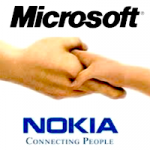
I disagree with TechFlash's Todd Bishop, who today writes that a "wholesale shift by Nokia to Windows Phone 7 from Symbian would be a huge change, similar in magnitude to, say, Apple adopting Intel chips." Oh, no, it would be much bigger than that and way riskier. [Editor's Note: Quote corrected for transposed "by" and "to"; I make that kind of mistake all the time.]
Bishop responds to yet another call for Nokia to enter an unholy operating system alliance with Microsoft or to merge -- this one from Berenberg Bank analyst Adnaan Ahmad. As the TechFlash managing editor rightly observes: "Ever since he went to Nokia, [Stephen] Elop's connection to Microsoft has been viewed as a possible prelude to a tighter relationship." Elop left Microsoft in September 2010, as president of the Business division, to become Nokia's chief executive. As I expressed nearly six months ago, Elop wouldn't be my first choice to run Nokia.
The pressure is on for Apple to think about life after Jobs
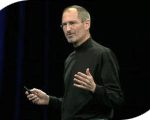
Ahead of its planned investor meeting on Feburary 23, Apple is once again having to deal with questions on a succession plan. The Cupertino company might have been able to avoid a lot of publicity surrounding an effort to force it to publicly disclose its plans, but Steve Jobs' indefinite leave of absence couldn't have come at a worse time.
Institutional Shareholder Services, a group that advises shareholders on how to vote on proxy ballot issues, has now said that it is advising a yes vote for the proposal. Under it, the company would be required to publicly disclose its plans for succession, and do so yearly.
iPad is a devil's deal for publishers
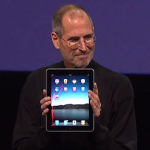
Apple's approach to magazine and newspaper subscriptions and third-party e-book sales stink of the kind of practices that got Microsoft into trouble with trustbusters on two continents during the late 1990s and early 2000s. A year ago, publishers embraced iPad as the savior of their industry. Now iPad looks like a devil's deal instead.
Trouble started three days ago, when Sony said that Apple rejected its Reader software from the App Store in a policy change. Apple responded that there is no policy change. Oh? Well, if there is no overt policy change, it is effectively one of enforcement. Either way, the demands Apple is placing on publishers is too much, and arguably being made from a monopoly position. Essentially, the company wants sales to go through the App Store, which would compel the likes of Amazon and Sony to sell e-books indirectly through Apple and would prohibit magazine and newspaper publishers from offering existing subscribers the benefits of iPad editions without paying more.
Steve Jobs' health is not a private matter
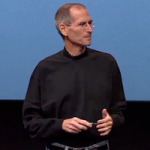
Sadly, I must reaffirm my position stated during Apple CEO Steve Jobs' last medical leave, in January 2009: His health situation isn't a private matter, and, frankly, it's even less so now. The seeming suddenness of Jobs' more recent medical leave, which this time is open-ended, raises reasonably disconcerting questions about how long he can continue as chief executive and whether Apple has in place an appropriate succession plan. I didn't expect to return to this topic again, and surely Macheads will beat me aside the head with snide and accusing comments or rebuttal blog posts. So be it.
As leader of a public company, Jobs has no inherent right to privacy where his ability to act as CEO is concerned. Jobs' share in Apple was, last time I checked, well below 5 percent. He isn't principal owner of Apple, tens of thousands of shareholders are. If not Jobs, then at least Apple's board of directors has a responsibility to appraise shareholders about such an iconic CEO's realistic ability to continue in the role. Right now, Jobs has essentially abdicated the responsibility for an undetermined amount of time. In a January 17 letter, Jobs explained that he had "asked [COO] Tim Cook to be responsible for all of Apple's day to day operations." Not some responsibility but all.
AT&T should shut up about Verizon iPhone
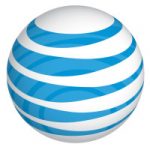
I see over on Business Insider that AT&T's PR boss is already bashing the Verizon iPhone that will be announced [this] week.
AT&T should shut up.
Hey, Steve Ballmer, where's the beef?
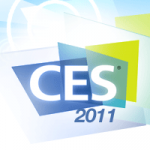
Critics, and even customers, accuse Microsoft of being empty, of having exhausted its innovation -- and for many of them that means imitation. Microsoft is often called he great imitator. At first glance, last night's opening Consumer Electronics Show keynote given by Microsoft CEO Steve Ballmer fits the bill. The keynote felt empty, and short. Microsoft didn't even show off something substantially new about tablets, which is one of the event's hottest product categories this year. The rumors about a tablet operating system were wrong.
What is Las Vegas? It's a place to be entertained (and, yes, gambling is one of the recreations). I think of Vegas as where entertainers who have passed their peak of popularity go. It is the city of celebrity has-beens. Perhaps then, Ballmer was where he belonged.
Do you care Apple is worth $300 billion?
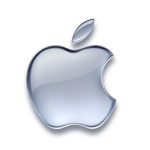
I sure don't. Otherwise I would have joined the cacophony writing about Apple's market capitalization milestone yesterday. I see the $300 billion valuation as another excuse for pageview-obsessed bloggers and journalists and hype-seeking Wall Street analysts and investors to write even more about Apple. It's great news for driving the share price higher.
From one perspective, Apple's valuation achievement is so impressive it shouldn't be ignored. Following the Sept. 29, 2008 stock market collapse, Apple's valuation plummeted. Apple's market cap was a mere $88.68 billion on Oct. 2, 2008, down by nearly half from a month earlier. Apple's stock price comeback is nothing short of miraculous over the past two years. In late May, Apple's market capitalization topped Microsoft.
Could Kinect be Microsoft's iPod?

On November 8, 2010, one of my most anticipated packages arrived from Amazon: a 250 GB Xbox 360 Kinect combo. Kinect is one of the more popular devices to leave the doors of Microsoft. The Redmond, Wash.-based company initially expected to sell two million of them during the holiday season but upped estimates to five million due to high preorder sales. Not a day goes by without reports about how someone has hacked Kinect for some other use besides gaming. I think this suggests demand for natural user interfaces will expand beyond touch, and go mainstream. Couple that with the high cool factor Kinect offers and this could be the device that reinvigorates Microsoft's consumer image. Could Kinect be Microsoft's iPod?
I think so. In case you don't remember, Apple was largely a forgotten company in the mid 1990s. There were no mainstream products, Macs were very expensive for most consumers to buy and most businesses chose the certainty of Windows. Things began to change when Apple cofounder Steve Jobs returned to the company in late 1996 and became interim CEO the next year. In 1998, he launched the trendy, translucent iMac. But there wasn't much room for Mac sales to grow -- most people used Windows PCs. Apple needed something new.
2011: Time for tech enthusiasts to act more charitably

I wish technology enthusiasts could focus more on the good that can be done for people and communities and less on whether their phone matches their shoes or who uses what product. Fanboyism is out of control and detracts from things that are more important.
Microsoft doesn't suck, and neither does Apple, Google or any other company with high revenue and long-term success. If someone writes an even slightly pro-Apple article, the Microsoft fanboys go crazy, and vice versa. These companies are all successful, and their products sell well. Shouldn't we all focus on something else?
Recent Headlines
Most Commented Stories
BetaNews, your source for breaking tech news, reviews, and in-depth reporting since 1998.
© 1998-2025 BetaNews, Inc. All Rights Reserved. About Us - Privacy Policy - Cookie Policy - Sitemap.